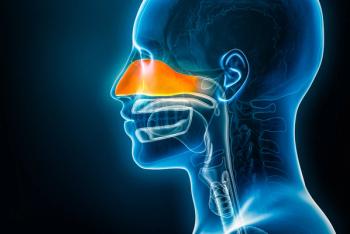
FDA Approves First Generic of Symbicort for Asthma and COPD
Called Breyna, this drug-device combination generic product is a metered-dose inhaler, which contains both budesonide and formoterol.
The FDA
“This approval reflects the FDA’s continued efforts to increase competition and access to quality, safe, effective and affordable medicines for patients and consumers,” Sally Choe, Ph.D., director of the Office of Generic Drugs in the FDA Center for Drug Evaluation and Research, said in press release.
The approval of Breyna was granted to Mylan Pharmaceuticals, a subsidiary of Viatris. The company plans to launch Breyna in 2022 as the upcoming court proceedings develop, according to a
Breyna is a metered-dose inhaler (MDI), which contains both budesonide (a corticosteroid that reduces inflammation) and formoterol (a long-acting bronchodilator that relaxes muscles in the airways to improve breathing). Two inhalations, two times a day (usually morning and night, about 12 hours apart), treat both diseases by preventing symptoms. The inhaler is approved for two strengths: 160/4.5 mcg/actuation and 80/4.5 mcg/actuation.
The most common side effects for those with asthma are swelling of nasal passages and back of throat, headache, upper respiratory tract infection, nose and mouth pain, sinusitis, influenza, back pain, nasal congestion, stomach discomfort, vomiting, and thrush. For those with COPD, the most common side effects are swelling of nasal passages and back of throat, thrush, bronchitis, sinusitis, and upper respiratory tract infection.
Newsletter
Get the latest industry news, event updates, and more from Managed healthcare Executive.

























